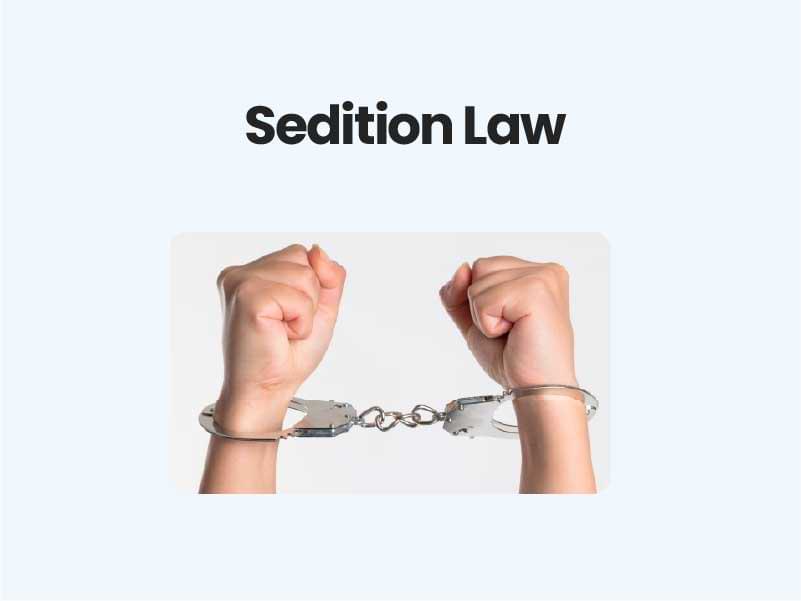Supreme Court grants interim anticipatory bail to Muslim doctor accused of raping Hindu woman on pretext of marriage
A vacation bench of the top court also sought the response of the Uttar Pradesh government in the matter, and directed the accused not to enter Muradabad till the next date of hearing. The Supreme Court on Thursday granted interim protection from arrest to a Muslim doctor accused of raping a Hindu woman on the pretext of marriage [Dr Abdul Qadir vs State of Uttar Pradesh and anr]. A vacation bench of Justices Aniruddha Bose and Rajesh Bindal sought the response of the Uttar Pradesh government in the matter and directed that the accused should not enter Muradabad (where the case has been filed), till the next date of hearing. The accused, Dr Abdul Qadir, has been accused of establishing sexual relations with a Hindu woman under the pretext of marriage. The counsel for the complainant-woman, advocate Purnima Jauhari, today opposed the plea for interim relief. “The man is a crorepati and I am a…
[Divorce case] DNA test on child to prove wife’s adultery should be done only in exceptional cases: Rajasthan High Court
The pain of winning or losing a battle of divorce amongst the contesting spouses is much trivial when compared with the rights of the child to have dignity and parenthood, Justice Pushpendra Singh Bhati observed. The Rajasthan High Court recently rejected an application by the husband in divorce proceedings seeking to bring on record a DNA test to prove that he was not the father of a child the couple had during their marriage. Justice Pushpendra Singh Bhati held that a DNA paternity test could only be conducted in exceptional cases and the child cannot be used as a weapon to get divorce on the ground of adultery based on a DNA test. “This Court thus finds that the requirement of the DNA Paternity Test can only be in the rarest of the rare and exceptional cases, while duly keeping in mind the best interest of the child as well as the…
TIPS TO HELP YOU NAVIGATE A CONTESTED DIVORCE
When people get a divorce, they can either go with the option of a contested divorce or an uncontested divorce. An uncontested divorce is where parties agree on all the divorce-related issues. On the other hand, a contested divorce is where parties cannot agree on all or some of the divorce-related issues. A contested divorce is usually lengthy and more expensive than a contested divorce because of the involvement of the court. It is hard for many people to have an uncontested divorce. If you are one of the people facing a contested divorce, you may be worried or stressed about navigating the legal process. At S.S Associates Law Firm, we understand how challenging a contested divorce can be. In this article, we share some tips we hope will help you navigate your contested divorce. Tip #1: Hire a Skilled Divorce Lawyer First and foremost, it is crucial that you…
THINGS DIVORCE LAWYERS WISH PEOPLE KNEW
If you are about to get a divorce, you probably already know that divorce can be complicated and expensive. However, there are things that you can do to make the divorce process easier and less costly. At S.S Associates Law Firm, we have seen it all, and we wanted to share some things that most divorce lawyers wish people knew before reaching out to a lawyer or starting the divorce process. Hopefully, the tips in this article can help make the divorce process smoother and less expensive for you. Be Prepared Your divorce lawyer will let you know which documents are needed for them to do their job. You should come prepared with all the necessary documents. If you do not give your attorney all the required documents, they cannot do their job well. If your attorney asks for a document and you don’t have it, let them know so…
Same-sex marriage: The Supreme Court’s task of ensuring individual self-fulfilment and deconstructing heteronormative societal biases
The case gives the Supreme Court a golden opportunity to extend its protections to the lowest rungs of the society, for whom the protections conferred in Navtej Johar have remained mere abstractions so far. In coming to its decision of decriminalizing homosexuality in Navtej Johar v. Union of India, the Supreme Court had emphasized on two related values – self-determination and equal citizenship – each of which was held to be constitutive of the idea of individual dignity under the Constitution. As such, Johar essentially created a fertile ground for further enlivening and realizing the rights of marginalized sexual identities. Seen against this backdrop, it can be easily said that the Supreme Court of India, as it reserves its judgment in the same-sex marriage matter, has essentially been tasked with an expository exercise. In adjudicating the claims laid by the same-sex couples, the Court will have to expound the values of self-determination and equal citizenship…
Rape on promise of marriage: Supreme Court stays Allahabad High Court order seeking woman’s kundali to ascertain her mangalik status
The High Court had passed the order while deciding the bail plea of a person accused of raping a woman on pretext of marriage. The accused had said the marriage could not be solemnised because the woman was a mangalik. In a special sitting held on Saturday, the Supreme Court stayed an order of the Allahabad High Court that had directed the astrology department of Lucknow University to study a woman’s kundali (horoscope or birth chart) to find out whether she is a mangalik. The High Court had passed the order while deciding the bail plea of a person accused of raping a woman on pretext of marriage. The rape accused had taken the defence that the marriage could not be solemnised because the woman was a mangalik. The Supreme Court, however, said today that a court of law, when deciding a bail plea, cannot enter into the realm of…
[Matrimonial Disputes] Growing trend to rope in all relatives of husband in Section 498A cases: Delhi High Court
A division bench of Justices V Kameswar Rao and Anoop Kumar Mendiratta noted that many such complaints are eventually settled by parties out of court. There is a growing tendency among women to rope in all the relatives of her husband including minors as accused in matrimonial cases for the offence of cruelty to wife under Section 498A of the Indian Penal Code (IPC), the Delhi High Court recently observed [Vikram Ruhal vs Delhi Police]. A division bench of Justices V Kameswar Rao and Anoop Kumar Mendiratta noted that many such complaints are eventually settled by parties out of court. The Court, therefore, granted relief to a man whose appointment as sub-inspector with Delhi Police was kept in abeyance as he was named in a first information report (FIR) filed for offence under Section 498A. “There is a growing tendency amongst the women to rope in all the relatives including minors in case an FIR is…
Sedition: Law Commission of India says Section 124A IPC should be retained; also suggests enhancement in punishment
Currently, Section 124A provides for life imprisonment or imprisonment upto 3 years. The Commission has suggested that the jail term of 3 years be enhanced to 7 years. The 22nd Law Commission of India headed by former Chief Justice of Karnataka High Court Ritu Raj Awasthi has recommended that Section 124A of the Indian Penal Code (IPC), which criminalises sedition, should be retained in the statute book with certain changes. A three-judge bench of the Supreme Court headed by the then Chief Justice of India N V Ramana had on May 11, 2022, put the provision in abeyance instead of deciding on its validity. This was after the Central government told the Court that it will re-examine and reconsider whether Section 124A needs to be retained. In its report, the Law Commission said that “Section 124A needs to be retained in the Indian Penal Code, though certain amendments, as suggested, may be introduced…
Bail cannot be denied to POCSO accused if victim avoids stepping into witness box: Jammu & Kashmir High Court
Taking into account the submission that the investigating agency was unable to trace the victim, the court noted that this could not be a reason to deny the statutory right of the accused. The High Court of Jammu & Kashmir and Ladakh on May 12 ruled that the conduct of a victim under the Protection of Children from Sexual Offences (POCSO) Act of avoiding stepping into the witness box was sufficient to entitle the accused bail [Ravi Kumar V/s Union Territory of J&K]. Justice Sanjay Dhar recorded that consideration of the bail plea could not be deferred indefinitely simply because the victim was keeping herself away from appearing in court. “It is not the case of the prosecution that trial is being delayed because of the conduct of the accused but it is a case where the victim is avoiding to step into the witness box. This conduct of the victim is…
Rape on woman’s dead body not offence under Section 375 IPC; high time Central government makes necrophilia an offence: Karnataka High Court
The Court urged the government to either amend Section 377 of the IPC or introduce a separate penal provision to criminalise necrophilia. The Karnataka High Court recently ruled that rape on the dead body of woman (necrophilia) would not attract the offence of rape under Section 375 of the Indian Penal Code (IPC) [Rangaraju @ Vajapeyi v State of Karnataka]. A bench of Justices B Veerappa and Venkatesh Naik also said that it would not come within the scope of unnatural offences under Section 377 of IPC. “A careful reading of Sections 375 and 377 of IPC makes it clear that a dead body cannot be called a human or person. Therefore, the provisions of Section 375 or 377 would not be attracted,” the Court said. It therefore, said that it is high time the Central government makes changes to IPC to make necrophilia an offence. Thus, the Court urged the government to either amend…










